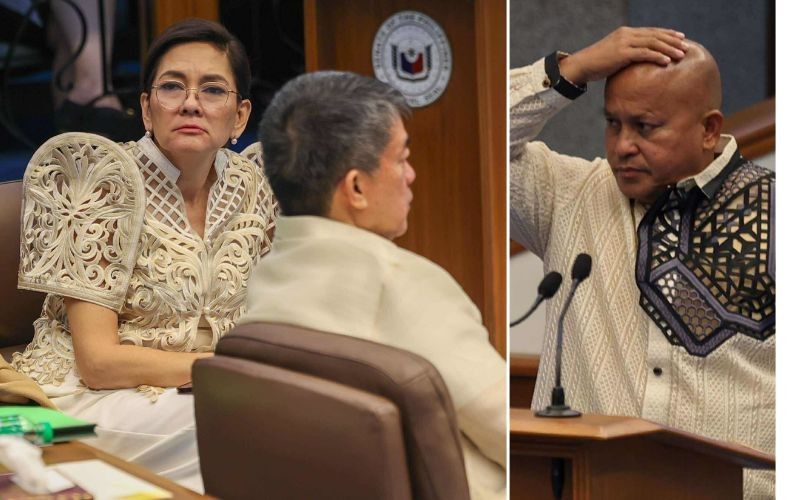
Upgrade to High-Speed Internet for only ₱1499/month!
Enjoy up to 100 Mbps fiber broadband, perfect for browsing, streaming, and gaming.
Visit Suniway.ph to learn
MANILA, Philippines — Filipino men are more likely than women to oppose candidates advocating for the legalization of divorce, according to a recent noncommissioned survey.
Public opinion research firm WR Numero reported on Thursday, March 6, that while Filipinos remain divided on supporting candidates advocating for the legalization of divorce, opposition is stronger among men, with four in 10 against it, compared to around three in 10 women.
Support for pro-divorce candidates stands at 33% nationwide, with women slightly above the average at 36.1% and men below it at 30.5%.
Overall, opposition is slightly higher, with about 39% of Filipinos rejecting candidates pushing for divorce legislation. Meanwhile, nearly a third, or 28%, remain undecided — a trend observed across both genders.
“Of course, our Christian, if not Catholic, heritage plays a role, as the Catholic Church has a clear stance against divorce,” WR Numero CEO and President Cleve Arguelles said in Filipino.
“We can also see that there are issues related to violence against women and children,” he added.
Across age groups, there is a stark difference between the youth and older Filipinos. More Filipinos aged 30 years and below have shown more openness in supporting divorce legislation, accounting for 40.5%.
Meanwhile, 54.2% of Filipino respondents who are senior citizens expressed their disapproval of candidates with plans to legislate divorce in the country.
Arguelles said that support for pro-divorce candidates varies significantly by region. In Metro Manila, 51.2% of respondents backed such candidates, well above the national average.
In contrast, support in other regions hovered around 30% or lower, which Arguelles attributed to cultural and values-based differences in relationships.
“I think again this supports our tentative explanation that it involves one’s belief system, access to the internet, access to information,” he added.
How is divorce different from annulment?
The Philippines remains the only country in the world, aside from the Vatican, without a divorce law.
While annulment exists as an alternative, it is limited to specific grounds under the Family Code of the Philippines.
These include fraud, lack of parental consent, unsound mind, physical incapacity to consummate the marriage, psychological incapacity or undue influence.
Divorce, in contrast, simplifies the legal process for couples seeking to end their marriage by reducing the burden of proof required in court.
A House bill seeking to legalize absolute divorce swiftly passed in 2024 but faces challenges in the Senate. It was defined as the “judicial dissolution of a marriage or the termination of the bond of matrimony.”
The proposed grounds include physical violence or gross abuse toward the petitioner or their child, drug addiction, habitual alcoholism, chronic gambling, harassment of children, marital infidelity and abandonment.
In the Senate, among those who expressed support for divorce include Senators Risa Hontiveros, Raffy Tulfo, Robin Padilla, Pia Cayetano and Imee Marcos.
They submitted Senate Bill 2443, or the “Dissolution of Marriage Act,” as a substitute bill to several other proposed measures on the matter that will institute divorce in the country. It has been pending for second reading since 2023.

 3 months ago
23
3 months ago
23



